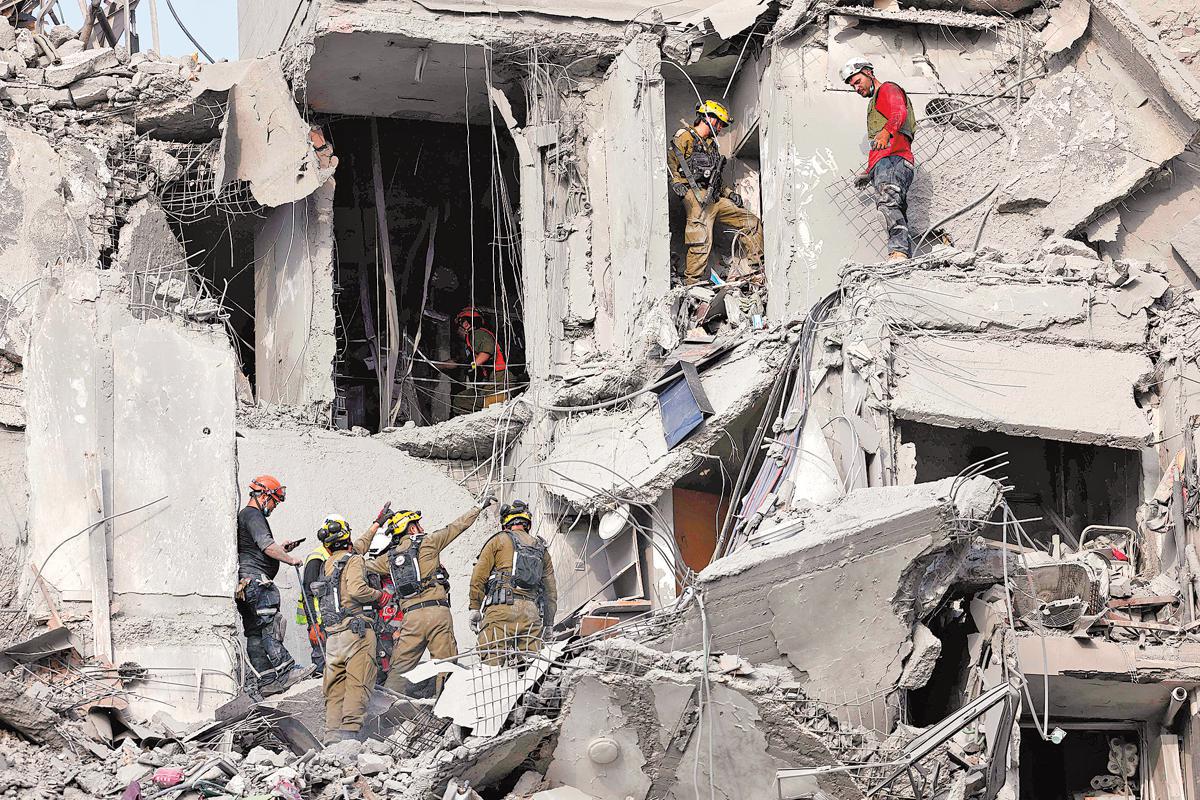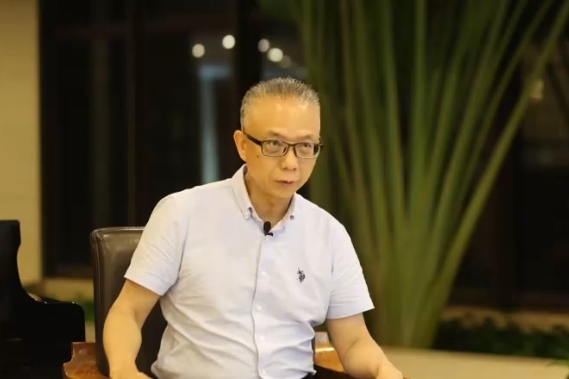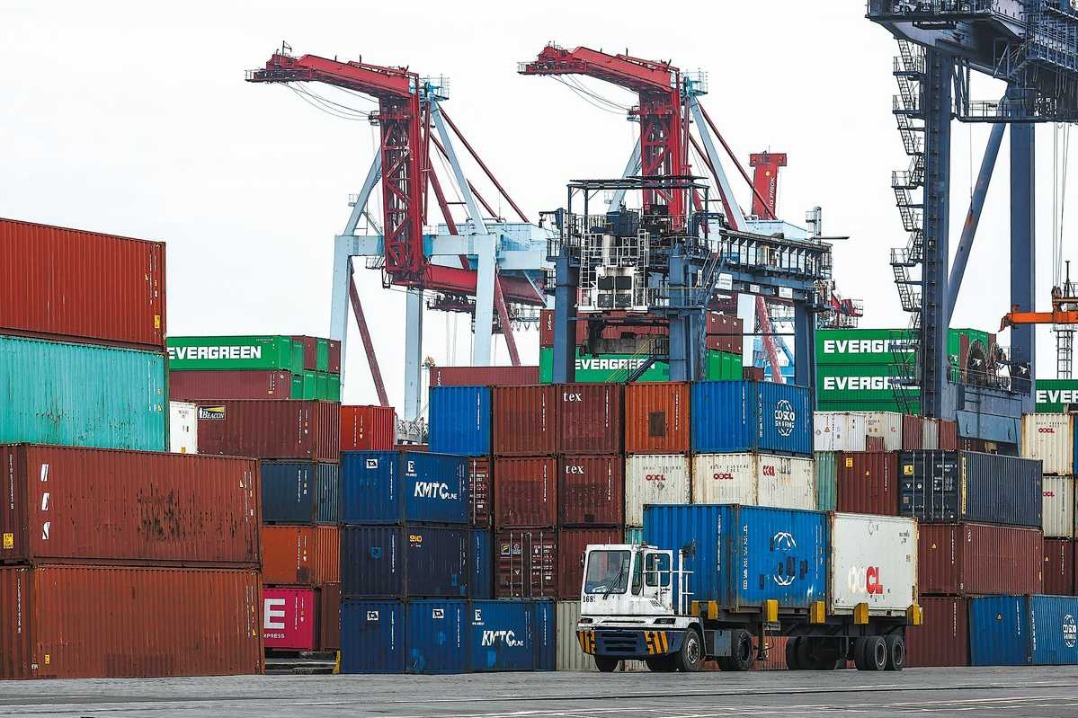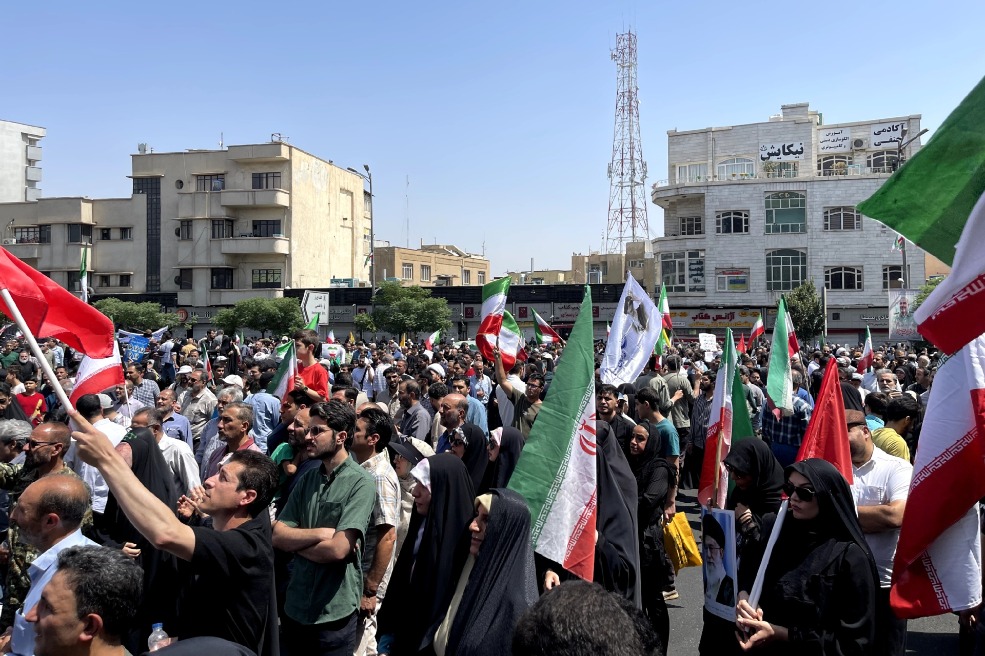Beijing calls for genuine Mideast truce
Mideast: Trump says truce in effect, slams Israel, Iran






China called on Tuesday for a genuine ceasefire to push for an early de-escalation of the situation in the Middle East.
Foreign Minister Wang Yi made the remark in a phone call with Iranian Foreign Minister Seyed Abbas Araghchi.
Araghchi briefed Wang on the latest regional developments, emphasizing that the dangerous actions of Israel and the United States in attacking Iran's nuclear facilities severely violated international law, leaving Iran with no choice but to retaliate.
Wang said that China supports Iran in safeguarding its sovereignty and security, achieving a genuine ceasefire, restoring normal life for its people and de-escalating tensions in the Middle East.
China has always been a builder of peace and a promoter of stability in the Middle East, the Chinese foreign minister said.
Araghchi said that although a ceasefire had just been reached between Iran and Israel, the situation remained unstable. Genuine negotiations can only begin if Israel ceases its aggression, he said.
He expressed gratitude for China's understanding and support for Iran's legitimate stance, and affirmed Iran's willingness to maintain close communication with China.
Chinese Foreign Ministry spokesman Guo Jiakun said at a news briefing on Tuesday that China does not want to see the spiraling up of tensions in the Middle East, and it hopes that a ceasefire between Israel and Iran can be realized as early as possible.
Israel and Iran had accepted a ceasefire plan proposed by US President Donald Trump to end their 12-day war.
Trump announced late on Monday what he called a complete ceasefire, suggesting that Israel and Iran would have time to complete missions that were underway, and the ceasefire would begin in a staged process. "Officially, Iran will start the ceasefire and, upon the 12th hour, Israel will start the ceasefire and, upon the 24th hour, an official end to the 12-day war will be saluted by the world," he said.
In a statement from his office, Israeli Prime Minister Benjamin Netanyahu agreed to the ceasefire, saying that Israel has achieved all its goals, including removing the "dual existential threat" of Iran's nuclear and ballistic missile programs. But Netanyahu added that "Israel will respond forcefully to any violation of the ceasefire".
The Supreme National Security Council, Iran's top security body, later said the nation's forces had "compelled" Israel to "unilaterally" cease fire, adding that they remained "on high alert" to respond to any act of aggression. Iranian state TV earlier said that a ceasefire would take place in Iran starting at 7:30 am local time.
However, Israel said it had intercepted two Iranian missiles later on Tuesday, with its Defense Minister Israel Katz ordering the military to "respond forcefully" over the "violation of ceasefire".
The General Staff of the Iranian Armed Forces immediately denied launching missiles at Israel after the ceasefire announcement. Foreign Minister Araghchi had earlier said that if Israel stopped its aggression, Iran would have "no intention" to continue fighting.
However, Trump accused both Israel and Iran of violating the ceasefire only hours after he announced it, expressing frustration with both sides.
Before Trump said that "the ceasefire is now in effect" on Tuesday, a fresh wave of missiles from Iran hit central and northern Israel, killing four people, according to Israel's ambulance service, while Iranian authorities reported nine people killed, including a nuclear scientist, in an attack in northern Iran on Tuesday morning.
Trump's declaration came after an escalation since Sunday, when he ordered the US bombing of three Iranian nuclear sites, prompting Iran to retaliate on Monday by attacking the Al Udeid Air Base in Qatar, the largest and most up-to-date US military facility in the Middle East. Trump said Teheran had given advance notice of the barrage.
Iran said the assault wasn't targeting its neighbor. The National Security Council said it was "in response to the US' aggressive and insolent action", adding that the number of missiles launched "was the same as the number of bombs that the US had used", a signal that it had calibrated its response to be directly proportional rather than escalatory.
Luciano Zaccara, an associate professor of Gulf politics at Qatar University, said the US, Israel and Iran are all putting a positive spin on the ceasefire to "save face" and "avoid escalation".
Ma Xiaolin, dean of the Institute for Studies on the Mediterranean Rim at Zhejiang International Studies University, said that due to the lack of mutual trust, Israel and Iran are bound to strive to expand their military gains, portraying themselves as having achieved total victory.
He noted that "the trend of a ceasefire has been determined", and in fact, both parties are restrained and controlled in the conflict, despite possibility of continued tensions for more days.


























